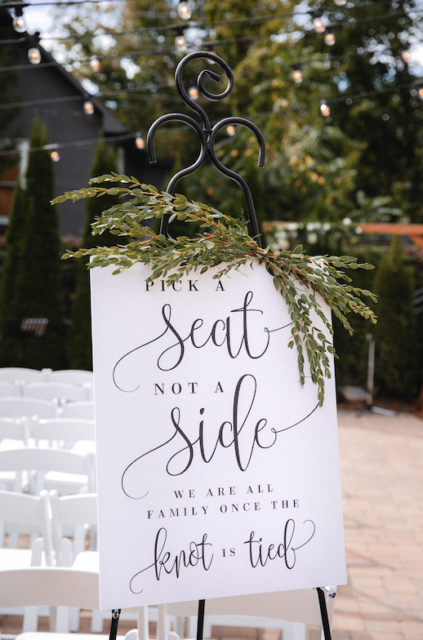After the excitement of engagement, many couples wake up to face the harsh realities of wedding planning. Since planning a wedding takes a significant amount of time and effort from both parties involved, it’s easy for both partners to become stressed and perplexed. Unfortunately, it’s not uncommon for these frustrations to lead to arguments.
With that said, the stress and tension of wedding planning can be reduced by following a few simple rules. From setting a date to walking down the aisle, considering the significant events and more minor details together will help each step of the process fly by.
Set a Budget First
One common source of stress during wedding planning is different expectations for budgeting the big day. One person may want an extravagant affair complete with an open bar and everyone they know. In contrast, the other person may assume a small family gathering with homemade food is more practical.
Couples should start by sitting down and discussing expectations for the wedding. Will there be several hundred people there or just a few? Will there be an open bar? What other splurges will be included? The engaged couple should agree firmly on a budget and figure out what they have to do to meet that budget.
Figure Out What’s Most Important
The couple should also discuss which factors to the wedding are a priority and agree on which things need to be skipped to stay within budget. Each person should choose a few things that they prioritize, and the other details can fall in later. These can be things like clothing, festivities, and venue grade.
Don’t Stress About the Little Things
There are so many different parts to planning a wedding that the event can quickly become overwhelming. Small but significant details like how to address wedding invitations should be taken seriously, but they shouldn’t be a significant source of stress and tension. Small projects can be divided up or done together as a fun date-night activity. By doing this, couples will be surprised how quickly the little things get checked off the list.
Make a Checklist
Before the couple moves on to planning the wedding, they should make a checklist and assign duties to ensure the wedding planning process goes smoothly. Each person should take charge of a few responsibilities so that neither person is given all the work. This will reduce conflict as each person should expect to work equally hard at planning the wedding.
However, just because one of the people takes charge of a specific duty, they should continue to communicate details with the other person. Open and frequent communication about how things are proceeding will help the process to move more smoothly. This way, if there are expectations about how quickly things should be going or if something goes wrong, both parties will know about what is happening.
Spend Time Together Without Wedding Planning
Wedding planning can get so time-consuming that couples often forget they need to continue to invest in their relationship. Spending time together and taking a break from wedding planning will help couples to continue to grow in their relationship. As they head to marriage, it is important to keep this in mind.
Going on a fun date night will help the couple to get their minds off of their upcoming big day. Activities such as mini-golf, a nice dinner, or a movie can help to relieve the stress of wedding planning and help couples remember why they’re getting married in the first place. They should kick back, relax and enjoy the wedding planning process.
Time to Get Started
Couples invest a significant amount of time and effort in planning the wedding they’ve always dreamed about. Between different ideas for budgets and responsibilities, it can be difficult for engaged couples to navigate the rough waters of wedding planning. By setting a budget and figuring out what is most important, and spending time outside of wedding planning, couples can plan a fantastic wedding and strengthen their relationship in the process.





